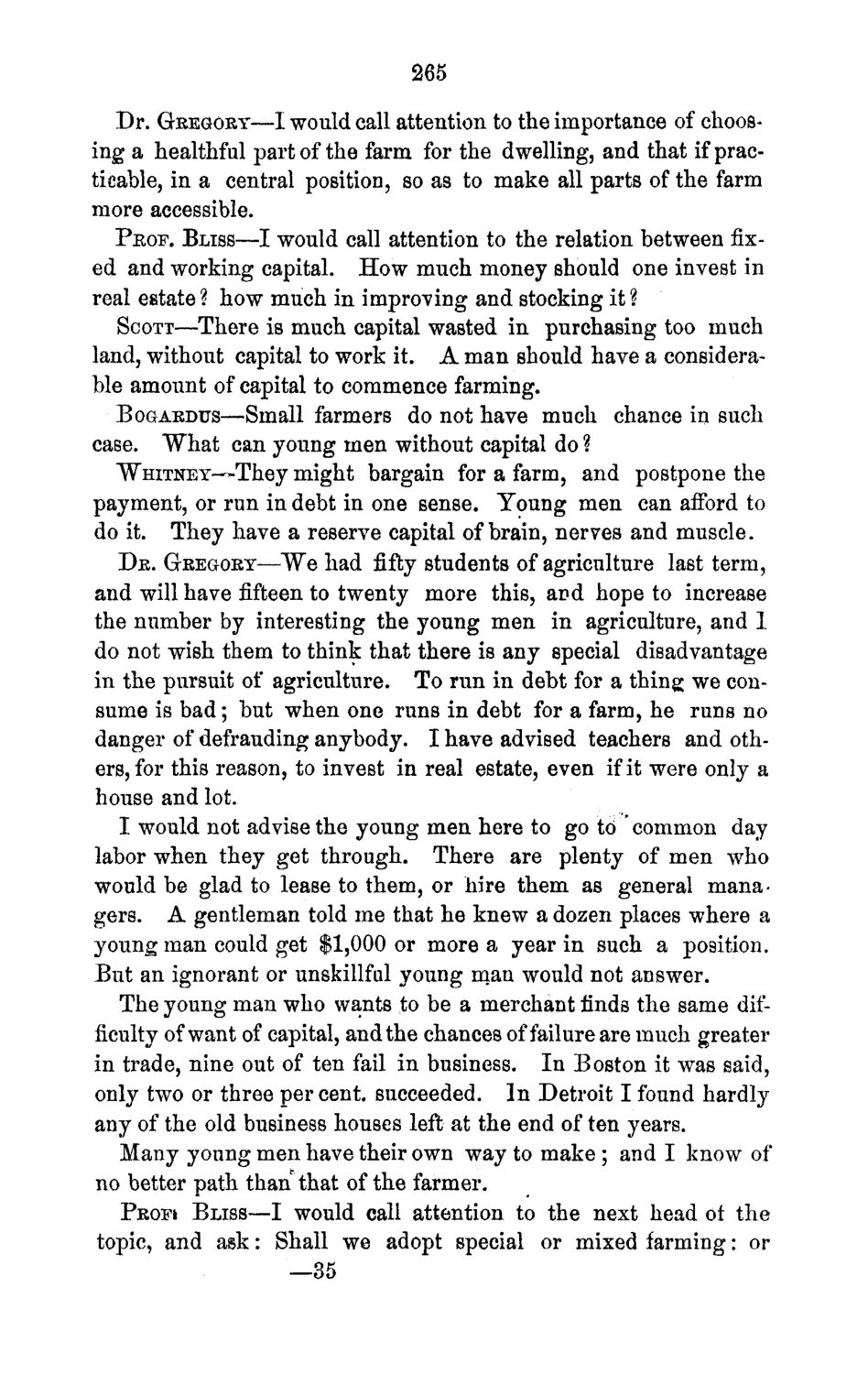| |
| |
Caption: Board of Trustees Minutes - 1870
This is a reduced-resolution page image for fast online browsing.

EXTRACTED TEXT FROM PAGE:
265 Dr. GREGORY—I would call attention to the importance of choosing a healthful part of the farm for the dwelling, and that if practicable, in a central position, so as to make all parts of the farm more accessible. PROF. BLISS—I would call attention to the relation between fixed and working capital. How much money should one invest in real estate ? how much in improving and stocking it % SCOTT—There is much capital wasted in purchasing too much land, without capital to work it. A man should have a considerable amount of capital to commence farming. BOGARDUS—Small farmers do not have much chance in such case. "What can young men without capital do ? WHITNEY—They might bargain for a farm, and postpone the payment, or run in debt in one sense. Young men can afford to do it. They have a reserve capital of brain, nerves and muscle. D R . GREGORY—We had fifty students of agriculture last term, and will have fifteen to twenty more this, and hope to increase the number by interesting the young men in agriculture, and 1 do not wish them to think that there is any special disadvantage in the pursuit of agriculture. To run in debt for a thing; we consume is bad; but when one runs in debt for a farm, he runs no danger of defrauding anybody. I have advised teachers and others, for this reason, to invest in real estate, even if it were only a house and lot. I would not advise the young men here to go td common day labor when they get through. There are plenty of men who would be glad to lease to them, or hire them as general managers. A gentleman told me that he knew a dozen places where a young man could get $1,000 or more a year in such a position. But an ignorant or unskillful young man would not answer. The young man who wants to be a merchant finds the same difficulty of want of capital, and the chances of failure are much greater in trade, nine out of ten fail in business. In Boston it was said, only two or three per cent, succeeded. In Detroit I found hardly any of the old business houses left at the end of ten years. Many young men have their own way to make ; and I know of no better path than that of the farmer. PROFI BLISS—I would call attention to the next head of the topic, and ask: Shall we adopt special or mixed farming: or —35
| |